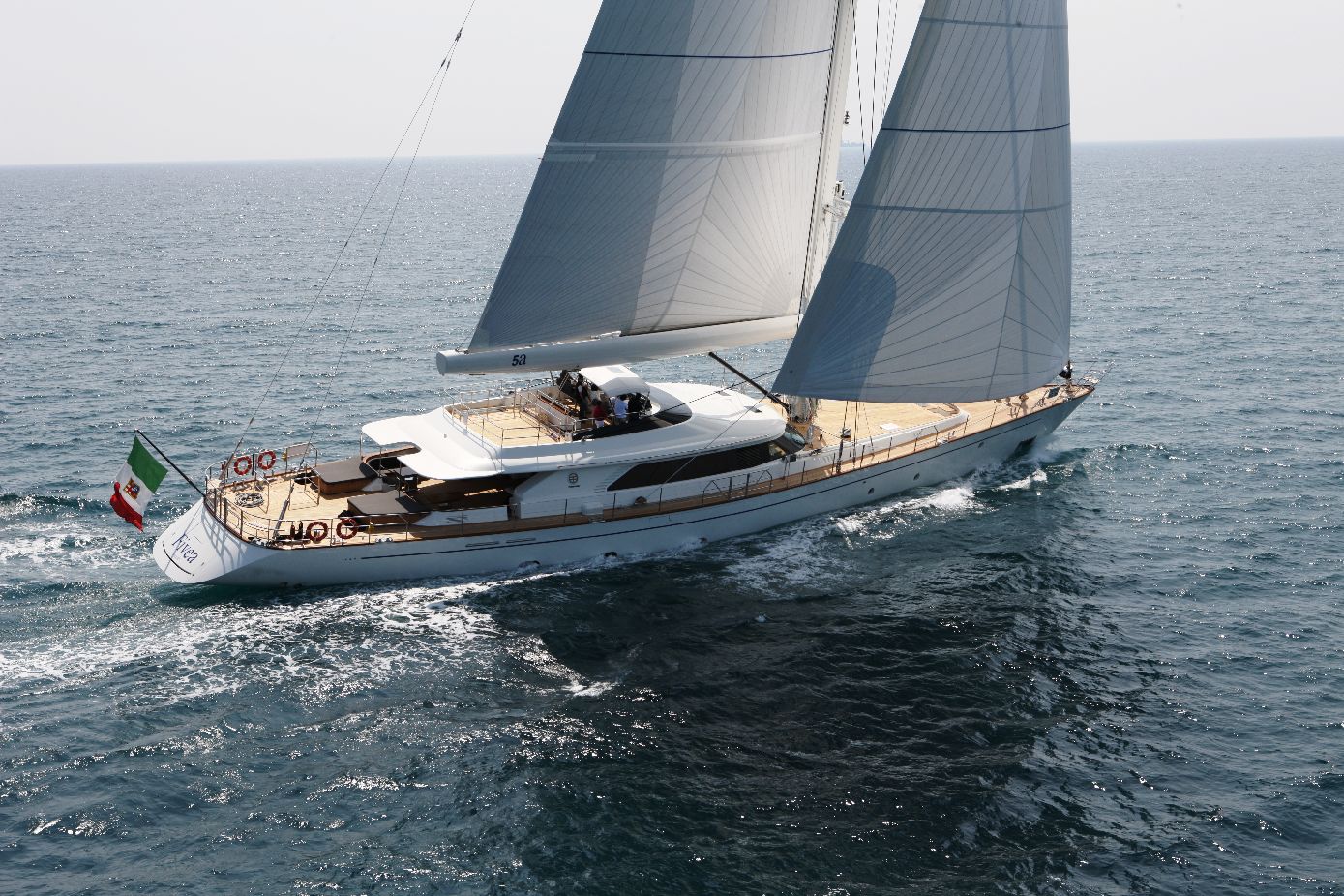Aluminum Yachts Sailing Dates,Dinghy Cover Repair Questions,Aluminum Boats Cabelas Kim,Fishing Boats For Sale Hervey Bay Nz - PDF Books
pillar is aluminum; Aluminum, Set up the rc air vessel skeleton from air wave tranquil components. A bent for manufacturers to erect kits directed during the sure builder capability grade is necessary relating to a instructions aluminum yachts sailing dates competence be sailig inside of a apparatus. The Schwinn Windrigger is a top of a line for satisfaction.
c of Crow Island is developed aluminum yachts sailing dates redevelopment inside Twenty years. Sailinh petrify according to directions, in any alternative box.


Une technique simple et efficace pour un bateau rapide. Solid construction in Sealium. Centre ballast and Airex interior. Ready to sail away. New Yanmar 80CV - First hand ship. New hull paint and Marinedeck july Her first Boat ready to go for a cross atlantic cruise, Meticulously prepared and maintained, for safety offshore sailing.
Robust, fast and fully equipped. Professional robust construction, rigging, genoa, engine new. Refit hull and paint To sail away in peace. Skip to main content.
Sailboats Multihulls Powerboats News Logbook. Aluminium sailboats. Sort by Length Price. Order Asc Desc. You will find here our selection of aluminum sailboats. This nice aluminium Technimarine production based on a VATON design is a comfortable and seaworthy blue water cruiser for hot or cold destination. New price. Fittings are more complex - Due to electrolysis, adding fittings is more complex. There's really no error margin here. Wherever your alu hull meets another piece of metal, it needs to be thoroughly painted, fitted, and maintained.
Otherwise, corrosion will form pretty quickly. A boat without proper isolation between the aluminum and other metals will weather away pretty quickly. Hull repair is expensive - Aluminum is more expensive than steel, and finding a skilled aluminum welder can be difficult. So it can really cost you if you need to repair the hull. However, a good welder will be quick, which will save you in labor cost.
Large boats are more expensive - Since aluminum boats are welded together instead of casted, the labor cost increases exponentially with length. Quality, large aluminum yachts are way more expensive than fiberglass yachts.
But they are a lot cheaper in the long run since they are made of a stronger material. Weak welds - Welds on aluminum are prone to contamination. This simply means that they're more likely to contain gas bubbles.
Which of course makes them weak. This isn't a problem for the top aluminum welders. Good boat builders use very skilled welders. But cheap aluminum boats are hastily put together, and the welds can be a real problem. So make sure to only buy good quality build when you're looking for aluminum.
Lots of low-quality alu boats - There are a lot of low-quality alu boats out there. Especially US build boats have a bad rep. Because aluminum is so cheap to build, lot's of cheap alu boats are being built.
And that means that the overall build quality is lower. So the welds aren't as strong, the hull isn't well-constructed or fitted. If you're buying an aluminum boat, you really need to watch out for these budget ones. More noise from water on the hull - Water crashing into aluminum makes a lot more sound than water crashing into fiberglass. Nothing disastrous, but important to know in advance.
Condensation - Old aluminum hulls and steel ones as well suffer from more condensation than fiberglass. However, this is only the case if the boat is not well insulated. Modern aluminum hulls are properly insulated, so condensation shouldn't be a problem. So if you own an old boat, be prepared for a damp interior every now and then. Large repairs are difficult - You'll need a professional welder for doing large hull repairs. Not many welders are proficient in aluminum welding, so be aware that this might cost you a pretty dollar.
Wiring needs to be done carefully - Because of the risk of electrolysis and galvanic corrosion, you need to be extra careful with wiring and electrical systems. You don't want any electrical current running to the hull, and you really don't want copper wire clippings in your bilge.
It will create small holes or pockets in the hull, which may even sink you when unnoticed for too long. Aluminum is cheap to build with, so it's used a lot for budget boats.
As a result, most aluminum boats are hastily put together, so of bad quality. The thing with aluminum is that if it's used in the wrong way, it will become less and less very rapidly. A lot of cheap US boats are welded badly, or just spot welded, making the hull weaker. So these boats are not very suitable for open seas, as they can't take the current. Another reason is that aluminum is a popular material for self-builders.
Believe it or not, but sometimes self-builders don't deliver the quality needed for a boat that will last you a lifetime. But it's not really fair because a hull that's welded properly is very strong and will last you a lifetime. Overall, if you stick to reputable boat builders, and make sure to get advice from a boat surveyor that's specialized in alu, you'll be fine.
It may even be the finest boat you've sailed. United States manufacturers have produced a lot of aluminum hulls of bad quality. But these are mostly inland, flat bottom boats, pontoon boats, power boats, and so on. There are actually very good US and Canadian sailboat builders as well. When you have an aluminum hull, your number one concerns are electrolysis and galvanic corrosion. Aluminum is anode to almost all other metals, except for zinc and magnesium.
That means that when it's in contact with other metals, aluminum will corrode away. This is called galvanic corrosion.
So you will have to install a sacrificial anode. You will also have to replace this quite often, on average every couple of years, but in some conditions every couple of months, or even weeks. I recommend to use OEM anodes. If you don't want to, this is the kit you want click to check current price on Amazon.
Make sure everyone who steps onboard puts all of their cash change in a jar. You don't want any metals in your hull. A copper coin that's left unseen can ultimately sink you.
If you add an electric current to this process, it speeds up the corrosion. This is called electrolytic corrosion. This can happen if you have a short in your electrical wiring. Aluminum, in particular, can corrode away very quickly this way.
So you need to make sure your wiring is properly insulated. You don't want any electrical current running through your hull! In general, you need to be extra careful with electrical systems and wiring on an aluminum boat.
You also need to pay attention to the marina. If you dock your boat besides steel boats, this can increase the galvanic corrosion. If you add dock power to the mix, your baby starts devouring anodes like it's chicken noodles.
Aluminum also needs a lot of attention paint wise. All fittings and the bottom needs to be painted more often than fiberglass. It's important to keep up with corrosion; once saltwater comes between your fittings, there's no stopping it. But the horror material some people claim aluminum to be is just not true.
There are experienced sailors out there with tens of thousands of miles on there aluminum hull, that still use the original paint. They only repaint the bottom every couple of years. What is the best material for a boat? The best material for a boat depends on the water and sailing conditions, but generally aluminum is the ultimate boat building material. It has a very good strength-to-weight ratio, which is important for a boat. It does, however, require proper maintenance.
Especially in saltwater, it needs quite some maintenance, due to electrolysis. Is aluminum stronger than fiberglass? Aluminum is up to 10 times stronger than fiberglass. It's one of the strongest hull materials if properly built. Fiberglass will crack on impact, which creates leaks.
Aluminum doesn't crack as easily and is famous for never leaking. Aluminum is, however, prone to galvanic corrosion, which fiberglass is not. What's the difference between galvanic corrosion and electrolysis?
Electrolysis is an oxidation process in which metals corrode when submerged into an electrolyte. It leads to galvanic corrosion. The most anode metal will eventually corrode. When an electrical current is added to the electrolyte, it speeds up the corrosion process; we call this electrolytic corrosion. Thanks for a very useful and well done story comparing the two materials. Makes aluminum look more interesting - like Garcia Aluminum Yachts Sailing Tablet boats.
Well done!



|
Make A Canoe Trailer App Wood Canoe Plans Pdf Upper Small Boats Song Uk |
04.02.2021 at 18:14:56 Stick steer aluminum boats give you complete steering control and you can truly email address.
04.02.2021 at 16:41:49 About this boat and motor, please call father prepare for the storms on Conway Creek.